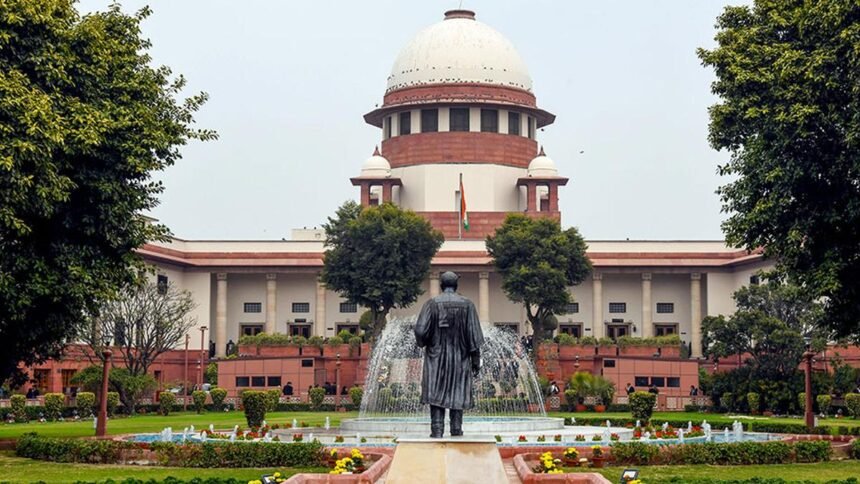The Supreme Court has expressed serious concern over the non-implementation of more than 8.82 lakh judgments delivered by courts across the country in civil disputes.
The top court described the situation as “highly disappointing” and “alarming.”
A bench of Justices J B Pardiwala and Pankaj Mithal made the remarks while reviewing compliance with its March 6 order, which had directed all high courts to ensure that civil courts within their jurisdiction decide execution petitions within six months.
Execution petitions are filed by decree holders who have won civil disputes and seek enforcement of the court’s verdicts.
The Supreme Court had made it clear that presiding officers would be held accountable for any delay in implementing its directives.
“The statistics we have received are highly disappointing. The figures of pending execution petitions across the country are alarming. As of now, 8,82,578 execution petitions are pending nationwide,” the bench said.
The bench noted that in the six months since March 6, a total of 3,38,685 execution petitions have been decided and disposed of.
In its October 16 order, the court observed, “As stated in our main judgment, if executing a decree takes years, it defeats the very purpose of the decree and amounts to a travesty of justice.”
The apex court urged all high courts to develop procedures and guide their district judiciary for the effective and timely disposal of pending execution petitions.
However, the court noted that “unfortunately, the Karnataka High Court has failed to furnish the required data.”
It directed the apex court registry to remind the Karnataka High Court to provide information regarding the disposal of execution petitions over the last six months and current pendency.
“The Registrar General of the Karnataka High Court must explain why this information has not been provided. Two weeks’ time is granted to submit an explanation,” the bench said.
The matter has been scheduled for further reporting on April 10, 2026. The court emphasized that all high courts must furnish complete figures regarding the status of pending and disposed execution petitions.
Earlier, on March 6, the court had observed that execution petitions in civil disputes were pending for three to four years. “If execution petitions remain pending for three to four years, it defeats the very purpose of the decree,” Justice Pardiwala had noted in the order.
The verdict relates to a civil dispute over land dating back to 1980 between two individuals from Tamil Nadu.
The Supreme Court had directed that after collecting the necessary data, high courts should issue an administrative order or circular to their respective district judiciary, instructing that execution petitions be decided and disposed of within six months without fail.
“Otherwise, the presiding officer concerned would be held accountable to the high court on its administrative side,” the bench said, highlighting the “long and inordinate” delays by executing courts in the country.
The civil dispute involved a sale agreement dated June 30, 1980, entered into by Tamil Nadu resident Ayyavoo Udayar concerning a piece of land.
After a dispute arose over the land’s title, Udayar filed a civil suit in 1986 seeking specific performance against the defendants regarding the agreement to sell.
In 2004, the decree-holder filed a petition directing the defendants to execute the sale deed and deliver possession, which was dismissed. A revision petition in 2006 allowed the claim, but the sale deed still was not executed.
In 2008, an order for delivery of possession was passed but remained unimplemented.
The Supreme Court held that the high court had “committed an egregious error” in passing the order.









